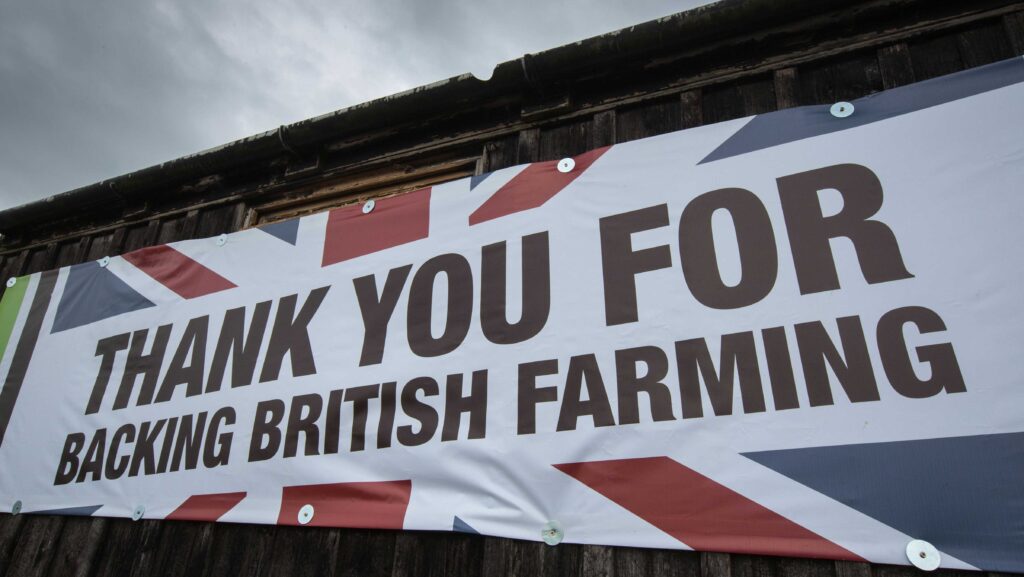Opinion: Farmers can be guilty of mixed messaging
 © Tim Scrivener
© Tim Scrivener Reading social media feeds and newspapers, it seems almost everyone is aware of agriculture’s current plight.
Even remote tribes from the depths of Dartmoor are likely to have a “Back British Farmers” banner adorning their local stone circle.
I sometimes wonder, however, how we’re doing as farmers in terms of supporting all the British companies that enable us to produce food here in the first place.
See also: Opinion – unearthing farm history can become addictive
Our tractors once powered the world. Now the likes of David Brown, Nuffield and Leyland are historic relics kept alive by enthusiasts.
I know we can’t all drive Fastracs and Land Rovers (or even the New Holland and Case models that are at least assembled in this country), but our message can appear slightly mixed when TV introduces a bunch of farmers pleading poverty and appealing to the nation’s patriotic instincts with a sign stuck to the front of a Fendt or John Deere that costs about the same as a small house.
I can’t talk either. My tractors were built in France and I’m a massive fan of German grass machinery. And to deny the benefits of global trade is effectively approving the same economic model that sustains North Korea.
However, it is clear other nations do a much better job than us at supporting their farmers.
Examples range from the French appreciation for terroir and local produce, to the yellow kangaroo assuring Australians that a product is not only made in their country but the business owners are bonzer Aussies as well.
Nor are we farmers very good at helping ourselves. At a recent meeting, I found out that a colossal proportion of animal feed ingredients are imported.
I don’t mean the stuff we can’t grow here, such as palm kernels and soya, but the cereals and oilseeds that we produce in abundance.
These imports may well be produced in systems that would fall short of our own domestic standards, let alone the increasingly absurd Red Tractor, but this can go by the board when the imported stuff’s cheaper.
Tellingly, the industry experts who informed me about this would not go on record for fear of merchant reprisals.
But the latest AHDB figures show we’re on track to import about 2.4m tonnes of wheat this year.
And the millers typically use less than one-third of that, so it gives you a reasonable indication of what’s afoot.
60% of our ammonium nitrate fertiliser is imported. There is one British manufacturer left (and even it is importing the ammonia).
Working-class hero Fred Dibnah once commented on the loss of British manufacturing and the necessary primary industries, saying: “We’ve become a nation of conmen, living by selling double glazing to each other.”
Farming evokes a sort of contrary pride in belonging to one of the last occupations actually producing stuff in this country.
Clearly we can’t bring back all the manufacturing and domestic industry any more than we can resurrect the great Mr Dibnah.
But if we want to ask the public to “back British farming” with a straight face, perhaps we could start by asking our feed reps or arable-buying groups where the ingredients that enable us to produce British food are coming from.
“Food security” is arguably irrelevant if we lack the materials to produce the food in the first place.

